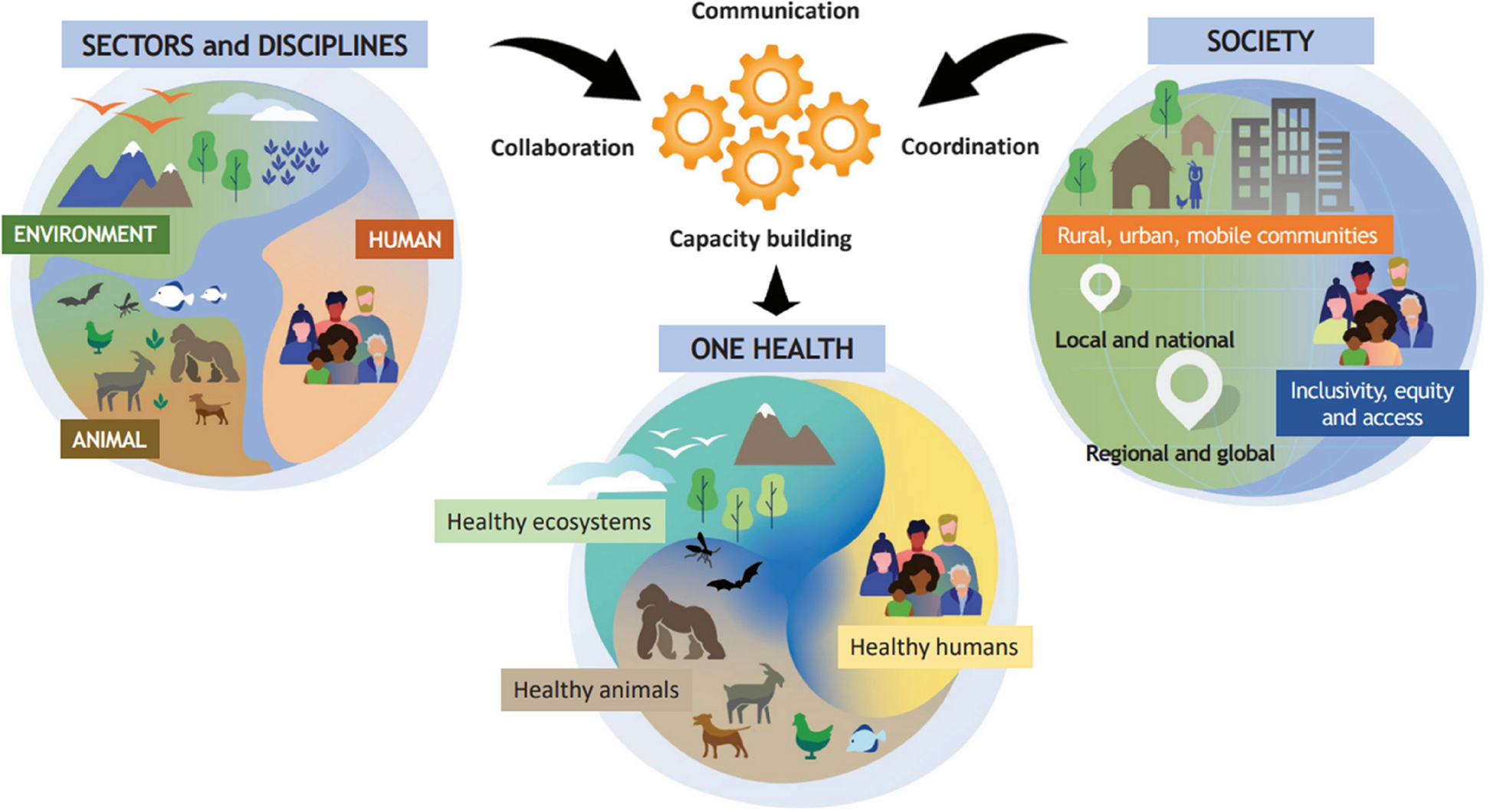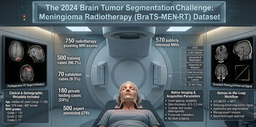Explore the Research

The One Health High-Level Expert Panel (OHHLEP) - One Health Outlook
One Health Outlook volume 5, Article number: 18 (2023) Cite this article
The commentary in One Health Outlook explains the journey of the One Health High-Level Expert Panel (OHHLEP) and outputs from the first term. The Quadripartite United Nations Food and Agriculture Organization (FAO), the United Nations Environmental Programme (UNEP), the World Organization for Animal Health (WOAH), and the World Health Organization (WHO) created this panel in 2021 to provide scientific and technical advice on One Health to the Quadripartite.
OHHLEP created several products to lay the foundation for One Health, including an inclusive and expanded definition of One Health, now globally accepted and used. It is also accompanied by foundational principles that ensure One Health actions are effective, fair, equitable and sustainable. In response to the One Health implementation, the Quadripartite developed the One Health Joint Plan of Action, and OHHLEP specifically worked with them to create the theory of change. OHHLEP has continued supporting this plan with an inventory of tools and other implementation products, which will continue into OHHLEP term 2.
The definition and scope of surveillance systems with a One Health focus needed clarification, and we reviewed and compiled examples of current One Health systems and identified optimal key elements of One Health surveillance. It also highlighted the gaps in global and national systems. In response to the Global Pandemic Instrument discussions, we published a whitepaper highlighting the importance of spillover prevention and clarifying this within pandemic prevention, preparedness and response. It provides a definition and the scope of prevention, underlining that this needs to be prioritised and more present in preparedness discussions with a stronger focus on response. It also highlights that the drivers of pathogen spillover need to be addressed following a One Health approach. The outputs of OHHLEP have laid the foundation for the development and implementation of One Health plans by the Member States, as well as the importance of global pandemic agreements.
OHHLEP Term I was instrumental in laying the foundations for the uptake of the One Health approach and also produced several policy opinions that have advanced the structural thinking, guidance, and resources that support the implementation of the One Health approach in countries and kept One Health at the top of the political agenda. The high-level work of OHHLEP Term II will utilise the augmented panel to build on the progress of Term I and maintain the political momentum required to continue progress on implementation. This work continues in Term 2 of OHHLEP, which started in April 2024.
Follow the Topic
-
One Health Outlook

This journal is a new open access journal published by BMC in collaboration with the Global One Health Community.
Related Collections
With Collections, you can get published faster and increase your visibility.
One Health aspects of acute respiratory virus infections of humans and animals
The growing understanding of the intricate connections between human, animal, and environmental health highlights the critical need for a One Health approach in addressing emerging and re-emerging respiratory viral infections. Zoonotic viruses such as influenza, SARS-CoV-2 (COVID-19), and other coronaviruses, as well as common respiratory pathogens like respiratory syncytial virus (RSV), human metapneumovirus (HMPV), and adenoviruses, continue to pose significant public health and veterinary challenges worldwide.
We invite submissions of original research articles, reviews, and case studies that explore various One Health dimensions of acute respiratory virus infections affecting humans and animals. Topics of interest include, but are not limited to- Zoonotic transmission and interspecies spread, Epidemiology and surveillance, Pathogenesis and immune responses, Diagnostic advancements, Prevention and control strategies, Environmental and ecological factors, and Public health and veterinary collaboration.
All submissions in this collection undergo the journal’s standard peer review process. Similarly, all manuscripts authored by a Guest Editor(s) will be handled by the Editor-in-Chief. As an open access publication, this journal levies an article processing fee (details here). We recognize that many key stakeholders may not have access to such resources and are committed to supporting participation in this issue wherever resources are a barrier. For more information about what support may be available, please visit OA funding and support, or email OAfundingpolicy@springernature.com or the Editor-in-Chief.
Publishing Model: Open Access
Deadline: Mar 24, 2026



Please sign in or register for FREE
If you are a registered user on Research Communities by Springer Nature, please sign in